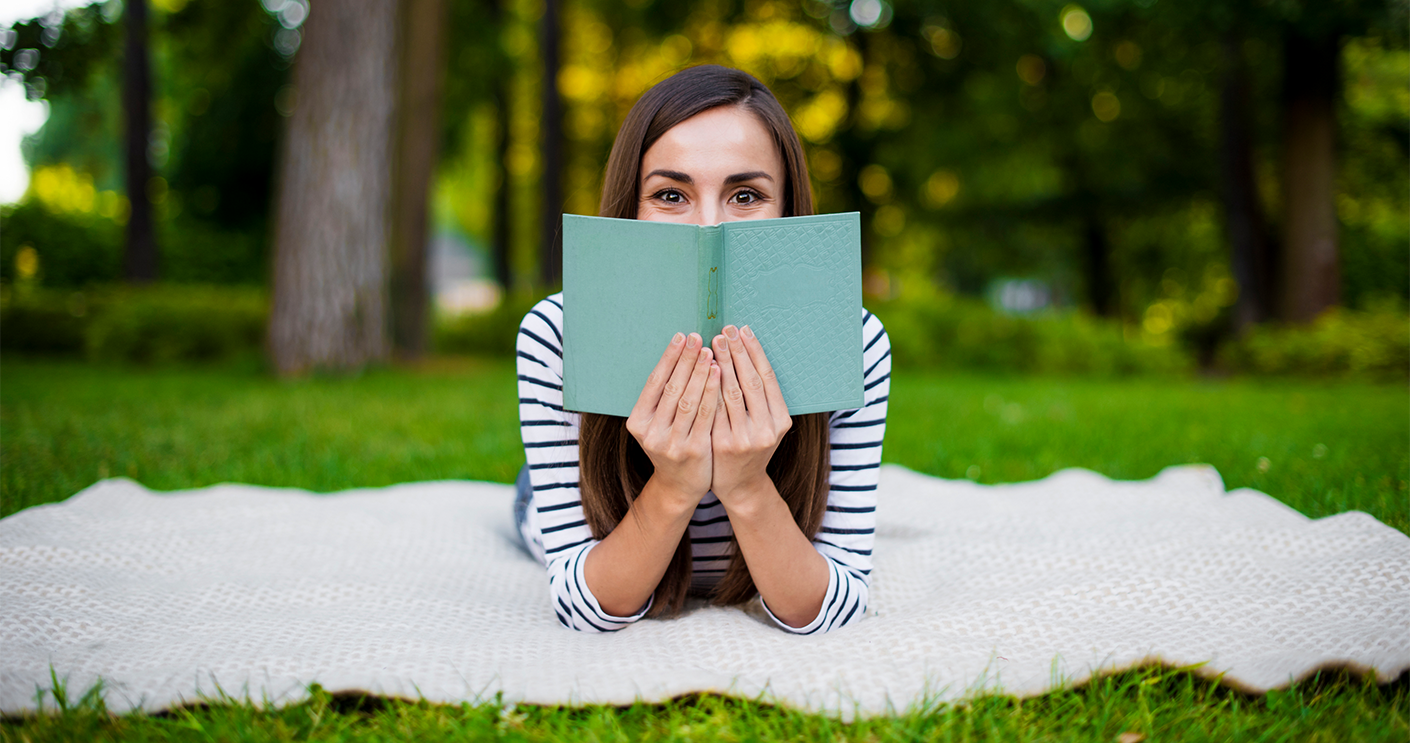How often do you read for pleasure? Every night, on weekends, summer holidays? Or, do you find you are so pressed for time that even if you buy books, you devote little time to reading them?
If you fall into the latter category, you’re not alone. According to a 2017 Survey of Australian Reading Habits undertaken by Macquarie University in partnership with the Australian Council for the Arts, 68 per cent of Australian said they don’t read enough. However, 95 per cent of us say we enjoy reading books for pleasure.
Seems the rub then is not about our interest in reading but about the time we can give to it. Perhaps the way back to reading more regularly is to read for short periods at a time.
A good day to start is Thursday 20 September, when thousands of Australians will be taking time out to read in an event called Australian Reading Hour.
The premise is simple – pick up a book, any time of the day or night, and read for 60 minutes. You might start that book you haven’t had time for, or read a short story or something outside of your usual choice of genre. Or you might want to spend the hour reading to someone else – a child, an elderly parent or grandparent.
But whatever you choose – just read!
We asked three reading enthusiasts from the Faculty of Human Sciences (which hosts the Macquarie University Reading Clinic) about why – and what – they read.
What will you be reading during Australian Reading Hour?
Professor Garry Falloon, Department of Educational Studies: I’ll be taking some time away from academic reading and burying my nose in Inside Out: A Personal History of Pink Floyd by Nick Mason, the band’s drummer. I’m a big fan of these 1970s and 80s rockers – they made some fantastic music, and it’s great reading about their motivations, trials and tribulations.
Dr Saskia Kohnen, Clinical Director, Macquarie University Reading Clinic: I will probably start reading Where the Trees Were by Inga Simpson.
Linda Schofield, General Manager, Faculty of Human Sciences: I’ll be reading Kate Forsyth’s Beauty in Thorns. Kate comes from a family of fabulous Australian female writers (three who studied at Macquarie!).
What book changed your life, made you think differently or remains in your psyche to this day?
Garry: Seymour Papert’s Mindstorms: Children, computers and powerful ideas. I read this when I was teaching primary kids in New Zealand and computers were just starting to come into our classrooms. I loved it because Papert (a brilliant MIT professor) offered a counter view on what technology had to offer learning, arguing that computers were tools to think with – not simply teaching machines.
Saskia: This would have to be a book called Das Huhn legt ein Ei (‘The Hen Lays An Egg’). It’s the first book I read independently, in my first language. The riveting story line is succinctly summarised in the title. I still remember the pride and joy of reading the book – all by myself! It was a milestone to reading everything I’ve read since.
Linda: The Book Thief by Markus Zusak. Set in Nazi Germany, I love the humanity of this book in the face of the grim realities of war. The book remains with me because of the big emotional impact it had on me when I read it – it made me laugh, and cry floods of tears.
Why is reading important?
Garry: Reading is essential to link one to the world of information – the building blocks of knowledge. Whether this be online or offline, it’s an important way we come to know about our world. It can also help us to relax and take stock of things – to reflect and remember, reminisce and recollect. It’s great therapy in a hectic world!
Saskia: In a literate society, reading is a fundamental skill towards academic success and employment. Reading (and being read to) develops children’s language skills. Reading is a major vehicle to acquire knowledge. Reading is also important socially. Being able to read our texts, emails and social media feeds allows us to connect with others. For me, it’s also an excellent form of entertainment.
Linda: Reading takes you to new places both real and imagined and helps you develop a richer understanding of the world we live in. Reading helps you connect with others, too: I connect with my daughter when we read together and with my book club friends when we talk about a book.
The Reading Clinic at Macquarie University provides research-based assessments and intervention for children, adolescents and adults with reading and spelling difficulties, and professional development for teachers and clinicians supporting those with poor reading and spelling.
Read about how Macquarie’s Dr Khyiah Angel is making books more dynamic in a bid to attract more young readers, as covered in the Sydney Morning Herald last weekend. Dr Angel’s multi-modal book I Know Why You Run, will be launched at the Incubator on the 27 September.


 Back to homepage
Back to homepage
Comments
We encourage active and constructive debate through our comments section, but please remain respectful. Your first and last name will be published alongside your comment.
Comments will not be pre-moderated but any comments deemed to be offensive, obscene, intimidating, discriminatory or defamatory will be removed and further action may be taken where such conduct breaches University policy or standards. Please keep in mind that This Week is a public site and comments should not contain information that is confidential or commercial in confidence.